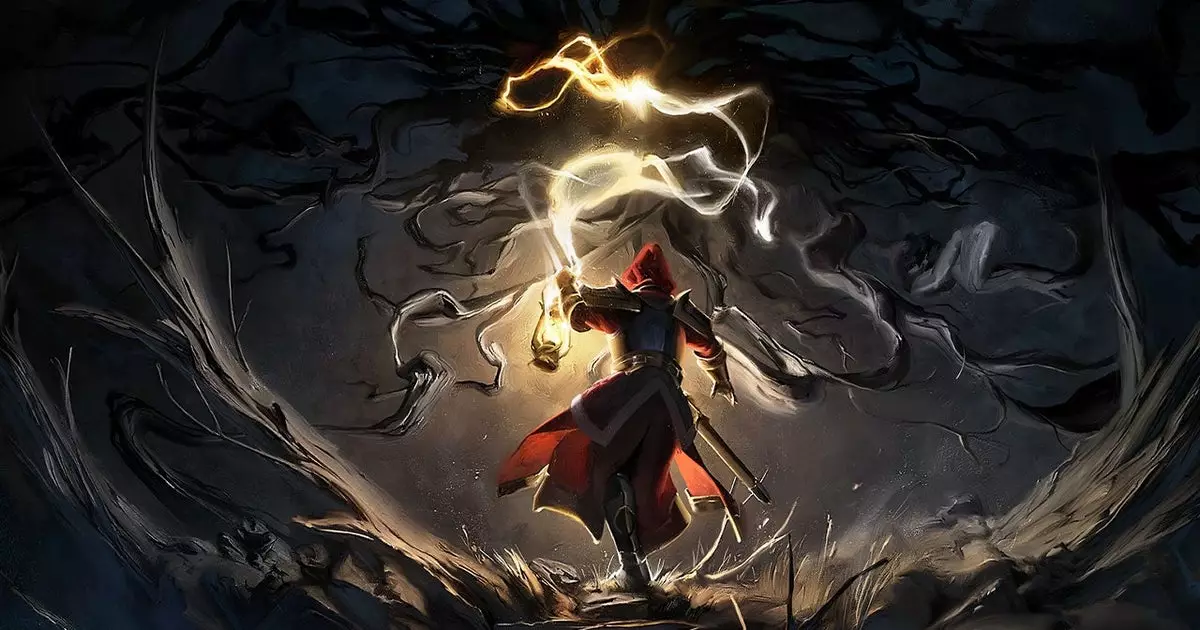The world of video games often gravitates towards familiar themes and motifs, particularly within the dark fantasy genre. However, a new title that has emerged from the shadows is *Mandragora: Whispers Of The Witch Tree*. This game initially sparked some skepticism; it presented itself as a mere amalgamation of elements found in other popular titles. On the surface, it seemed as if players were merely getting another gritty side-scroller, one that appeared to be a by-product of revered franchises such as *Castlevania* and *Trine*.
Yet, this initial perception could not be further from the truth; *Mandragora* is carving out its own identity with a compelling narrative interwoven into its gameplay mechanics. The presence of notable figures in the gaming industry, such as Brian Mitsoda, who brought depth to *Vampire: The Masquerade – Bloodlines*, adds another layer of credibility to this title. With the anticipation surrounding its launch, the question remains: does *Mandragora* truly offer something fresh, or does it remain trapped in the confines of its inspirations?
A Story that Captivates
From what has been revealed in the gameplay, *Mandragora* is anchored in an apocalyptic landscape dominated by a tyrannical King Priest. The gripping plot reveals a society where dark forces reign and witches are persecuted. As players take on the role of a Crimson City inquisitor, they find themselves grappling with moral dilemmas, highlighted by the transformative moment of mercy-killing a tortured witch. This escalates quickly into a journey that pulls the player in, blending combat with narrative exploration in a genuinely engaging way.
What captures players’ attention straight away is not just the dark allure of the setting but the intricate storytelling that drives it. The interplay between the main character and the enigmatic whispering voice introduces an element of psychological intrigue that invites deeper immersion. Unlike many RPGs that may foreground their mechanics over storytelling, *Mandragora* critically emphasizes narrative, enhancing the emotional impact of player choices.
A Gameplay Experience that Engages
While narrative depth is pivotal, gameplay remains crucial in the success of any title. *Mandragora* deftly blends different gameplay elements that cater to fans of various genres. As an action-RPG, it delivers a balanced experience reminiscent of the classic *Castlevania*, while also inviting comparisons to modern RPGs, thanks to its complex skill trees and crafting mechanics.
Player agency is apparent, especially with combat emphasizing stamina management and evasion techniques, encouraging strategic thinking in navigating encounters. The game’s world is intelligently crafted, featuring labyrinthine levels filled with impressive verticality and hidden pathways that reward exploration. While controls and animations may exhibit occasional awkwardness, the overall gameplay remains captivating. Such elements allow players to personalize their combat style through unique abilities and gear—which is refreshing in today’s gaming landscape where many titles prioritize simplicity over depth.
A Visually Striking Aesthetic
In addition to the narrative and gameplay, the visual presentation of *Mandragora* distinguishes it from its peers. The art style, filled with characterful portraits and intricate animations, has garnered mixed reviews. However, for those drawn to an unorthodox aesthetic reminiscent of oil paintings, it enriches the experience rather than detracting from it. The engagement of NPCs through lively dialogues adds to the world-building, effectively thickening the atmosphere like a well-crafted broth.
This vibrant, yet haunting, landscape feels quintessentially fitting given the overarching themes of struggle and persecution. Players are plunged into a world where every interaction, no matter how mundane, has implications that resonate throughout the broader narrative—a testament to thoughtful game design.
A Journey Worth Taking
As *Mandragora* continues to unfold, it presents an opportunity for gamers to explore a robust narrative alongside engaging gameplay mechanics. While skepticism may have initially colored readers’ views, firsthand experiences reveal its potential. Perhaps it is time to set aside preconceived notions of genre tropes and embrace the adventure that *Mandragora* promises. With an estimated gameplay time of 40+ hours, one can only hope that the journey will captivate players as much as its potent story already has.


Leave a Reply